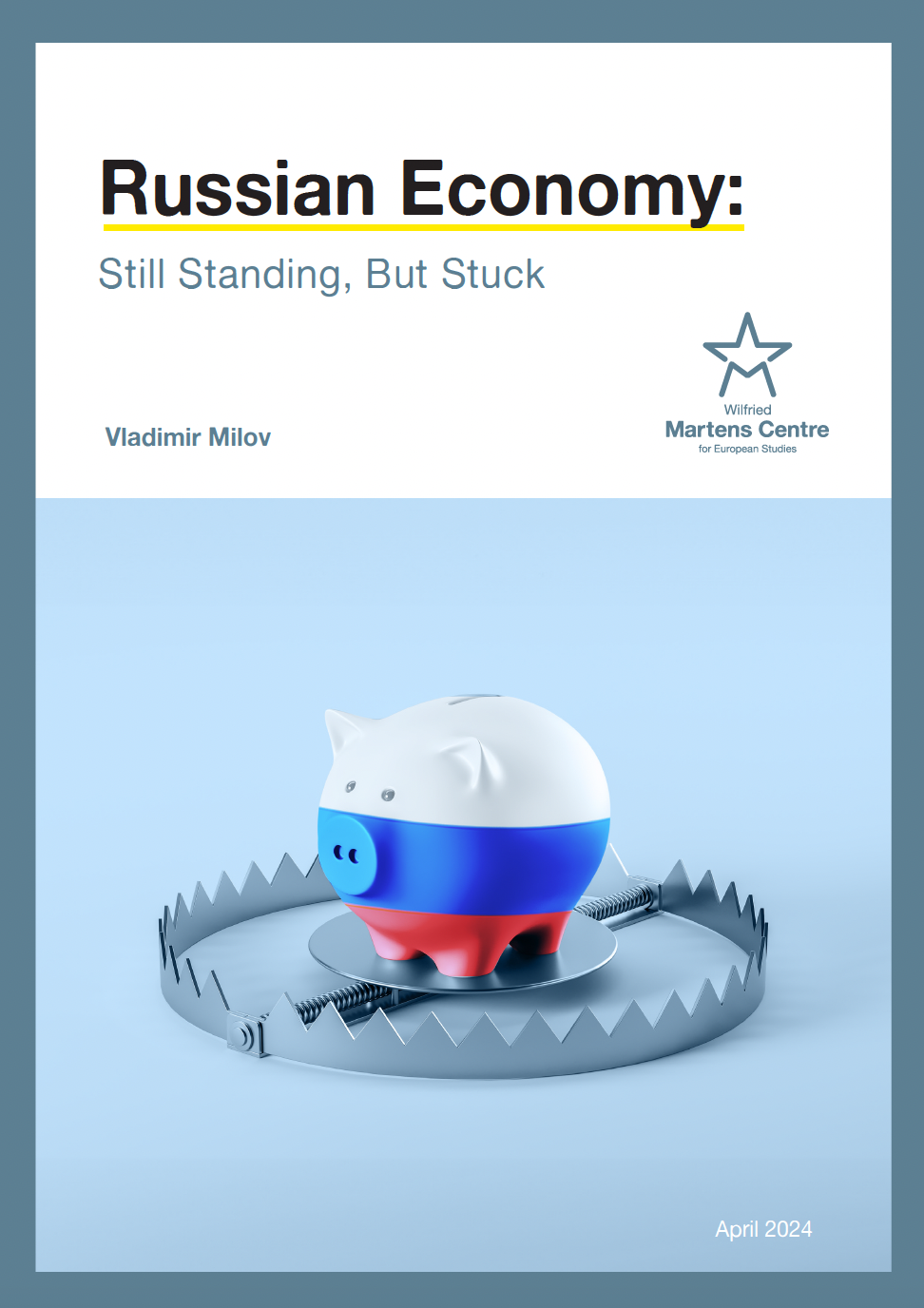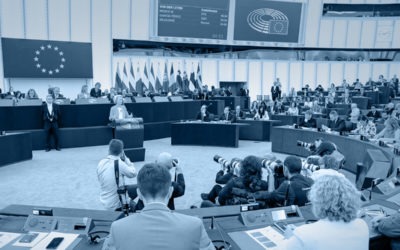The Windsor Framework Shows that Germany is Key to a British Recovery
03 March 2023

Photo credits: https://flic.kr/p/2ohxRMi
Much of the analysis of the recent Windsor Framework between Britain and the EU naturally focuses on the specifics of the accord. From the role of the European Court of Justice (ECJ) to the extent of customs checks at Northern Ireland ports, the compromises on both sides are compared against the previous years of fraught negotiations.
Yet, irrespective of the internal politics of Northern Ireland – and the uncertain response of the Democratic Unionist Party (DUP) – the Windsor Agreement highlights one key political issue. Namely, that nearly seven years after the Brexit referendum, both London and Brussels finally understand that they have bigger things to worry about than Northern Ireland.
Prime Minister Sunak’s signalling that he will continue with this deal irrespective of DUP misgivings illustrates the changed political landscape in Britain. The COVID-19 pandemic, war in Ukraine, inflation, rising interest rates and falling house prices – not to mention a Conservative Party 22 points behind in the polls – is not the vista imagined by most Brexit voters in 2016.
In this context, settling the Northern Ireland issue (with or without the DUP) marks the first step in Westminster’s normalisation of relations with the EU. This is the start of a process that will likely last over a decade, require at least one more change of government in London, but ultimately will bring Britain closer to Brussels on key issues related to security and defence, climate change and global trade. It should also repair the Anglo-Irish relationship which has been badly undermined over the last decade, but which is vital to future peace in Northern Ireland.
If Sunak can surmount the short term risk of a hard Brexiteer/Boris Johnson rebellion, British-EU relations will stabilise on a firmer footing. It will also strengthen Sunak’s own position within the Conservative Party. And that’s a much bigger prize for Westminster (and the Prime Minister) than keeping the bleating hearts of the DUP happy in Belfast. Especially when it negates the non-too subtle warnings from President Biden about the importance of maintaining the Good Friday Agreement in Northern Ireland.
The reality is that the socio-economic challenges facing Britain should not be underestimated. Leaving the EU – and the last seven years of tedious Brexit-centric focus – have led to a period of decision making drift. This, at least in part, symbolises a broader feeling that socio-economic conditions are diminishing relative to comparator countries. It’s reflective of a feeling of discontent that is common across most aspects of the British public service. It has also manifested itself in an ongoing series of strikes in the health, transport and education systems.
And this is why the past experience of Germany is key to aiding Britain’s recovery.
Germany in the late 1990s and early 2000s was infamously referred to as “the sick man of Europe”. Berlin was viewed as the driver of the EU’s economic weakness and as incapable of reinventing itself for the post-Cold War age. Despite being home to many world-leading companies, an industrial heartland and a well-developed education system, it seemed that the financial burden of reunification would drag down overall living standards for generations to come. Rising public debt (it doubled between 1989 and 1995) and increasing unemployment came to symbolise Germany’s waning international influence.
And while Britain’s self-inflicted choice to leave the EU is fundamentally different from German reunification, the economic results of both processes are broadly similar. And much of the simplistic analysis of Britain’s economic woes are characterised by the monotone narratives which surrounded Germany’s struggles in the late 1990s.
Britain’s current economic position – a public debt of around 100% of GDP, unemployment under 5%, marginal economic growth and deep public discontent – is no worse than that faced by Germany over two decades ago. And Germany’s response – most commonly associated with the Agenda 2010 policies of Chancellor Schröder – provide a possible pathway for a British economic renaissance in the decade ahead.
Those reforms tackled the key structural blockages impacting Germany at that time – inflexible employment contracts and a reduced incentive to work owing to the structure of social security. An upturn in the global economy and booming exports provided the macroeconomic support for the subsequent terms of Chancellor Merkel’s rule.
Britain’s core issue relates not to labour market flexibility or social security largesse. Britain is already a flexible, deregulated and small state economy by continental European standards. Its long-term average of public spending at around 40% of GDP is well below its EU comparators of France (59%), Italy (55%) and Germany (51%).
But Britain does face a crippling shortage of both workers and skills. A cluster of world class universities shields a wider education system that is ill-prepared to produce the skills employers require in the post-COVID age. Britain needs to tackle its teacher shortage, improve vocational options and boost life-long learning. It needs to empower the private sector to invest more in innovation, research and upskilling. It needs to make work pay by cutting some of the highest childcare costs in the developed world.
Just like Germany in the 2000s, Britain is neither a sick man or a declining economy in 2023. But, as with Germany two decades ago, it requires fundamental structural reforms to boost productivity, growth and employment.
However, closer relations with the EU (even membership of the Single Market) will not fix Britain’s structural flaws. As with Germany, the only real solutions are difficult domestic economic reforms. The Windsor Agreement can give Prime Minister Sunak the space to focus on the challenging decisions ahead. And that’s why Britain should remember Germany’s recent economic history.
ENJOYING THIS CONTENT?





















